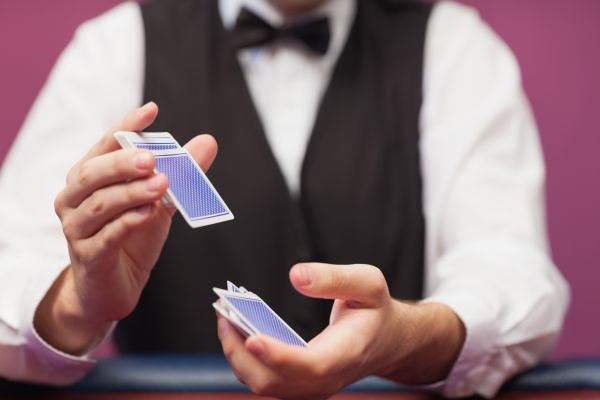
Whoever invented the concept for poker's bad beat did everyone a favor -- players, dealers and the House.
Let's face it. Those big poker bad beats have probably done as much for the game as those under-the-table cameras that show what a player is holding. The mini-cameras brought poker to the attention of the general public through television in a way that no amount of advertising or public relations could have done.
Since some members on this website may not know what a bad beat is, I'll explain. The poker room manager determines what the minimum poker hand must be to qualify for the bad beat. In most cases, the hand is aces full of jacks, although hands can vary depending on the casino. I have seen some tight-fisted managers who set the 'beat' hand at quads or four of a kind. If you make four deuces and somebody else makes four threes, Bingo -- you win half of the bad beat jackpot, the pot winner gets a quarter and all the other players at the table get a slice of the rest of the jackpot.
Poker rooms pay for the bad beat by dropping a dollar from each dealt hand into a special slot. Although all the money is supposed to go for the jackpot, that doesn't always happen, which is a bone of contention in a growing number of casinos. Some casino managers take that extra drop money and use it for special promotions that have little or nothing to do with poker. If you have a suspicion that this is occurring in your favorite casino, ask to talk to a poker room manager to find out how that money is being used. It's your money since it came from the pockets of the poker players, and you have every right to know if you are being treated fairly.
While some poker players don't like bad beat jackpots, I love them.
I remember one memorable night at The Orleans Casino and Resort in Las Vegas. The game was $4-8 Omaha High-Low, eight or better. I was dealt A-2-Q-Q. The flop came Q-Q-J. The turn card was a 3 and the river card was a J.

We had hit the bad beat jackpot was totaled $49,000. My share was just over $11,000, the player I beat received $22,000 and the table shared the rest.
I don't know how much the table tipped the dealer, Leon, but I am sure it was substantial. Dealers always love it when they deal a bad beat jackpot. In many casinos, the poker room manager will give them the rest of the night off and replace them with another dealer. That is what happened to Leon, who has a reputation for being one of the fastest poker dealers in Las Vegas. We have since become good friends and often exchange emails.
Bad beat jackpots can grow to enormous proportions, with some of them climbing into the $200,000 range. I know poker players who will follow the big jackpots like some folks follow a circus parade. They will play at that casino for hours upon hours until the jackpot is hit. That's why many bad beat jackpots happen in the early hours of the morning when only one table is operating.
During more than four decades of playing poker, I have hit only two major bad beat jackpots, one for $11,000, the other for $6,000. It's always a thrilling moment and it makes up for all those lesser bad beats when you don't win anything and the winner scoops the pot.
While some poker tournaments are structured so that a bad beat is paid off, most do not. There was a case at the WSOP when a player flopped four aces and was beaten by a queen-high straight flush. In another major tournament, four nines lost to four queens.
Another highly publicized bad beat happened in a million dollar buy-in game (the winner received $15 million). Two players named Drinan and Katz were dealt pocket aces. The dealer turned up four hearts and a shell-shocked Connor Drinan got up from the table and literally staggered to the rail, a loser.
When you play poker, very few hands are totally safe. The best advice I can give you when you suffer a serious bad beat where there is no payoff is to smile and shrug it off. In poker, every hand is different and every deal, like all the days we live, presents a new beginning.
Author: Geno Lawrenzi Jr.
(Geno Lawrenzi Jr. is an international journalist, magazine author and ghostwriter. If you have a unique gambling story to share with him, you may qualify for a cash award. Send your story with all the details to glawrenzi@gmail.com ).
Your feedback
Please enter your comment.
Your comment is added.
Comments (1)
Armage
![]() 04/25/15, 06:04:04 AM
04/25/15, 06:04:04 AM
Sadly, that i never hit Bad beat Jackpots, but have many terrific bad beats. One time I get out from the tournament with quads jacks. Guy, which was my fiercest...
Sadly, that i never hit Bad beat Jackpots, but have many terrific bad beats. One time I get out from the tournament with quads jacks. Guy, which was my fiercest enemy at the table, hit straight flush. I was shocked, but not angry, because it was my first big bad beat. I guess i will never forget my first true bad beat :)
Show more



